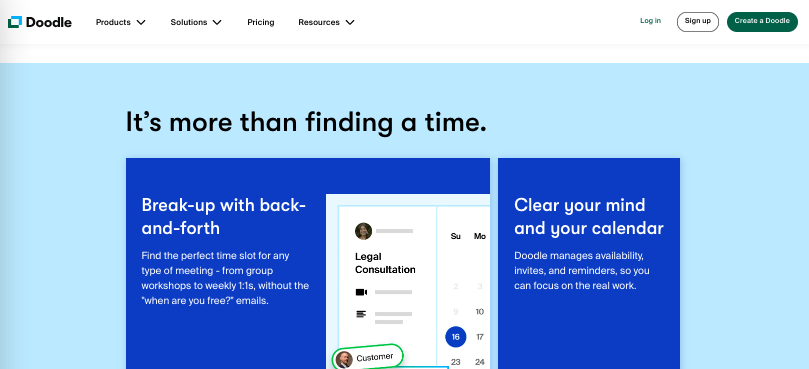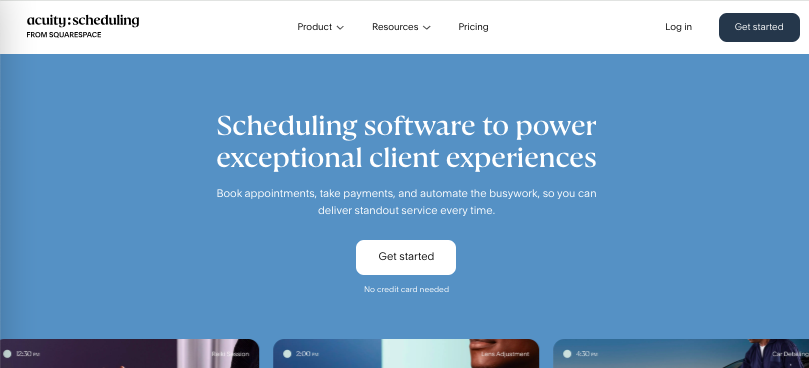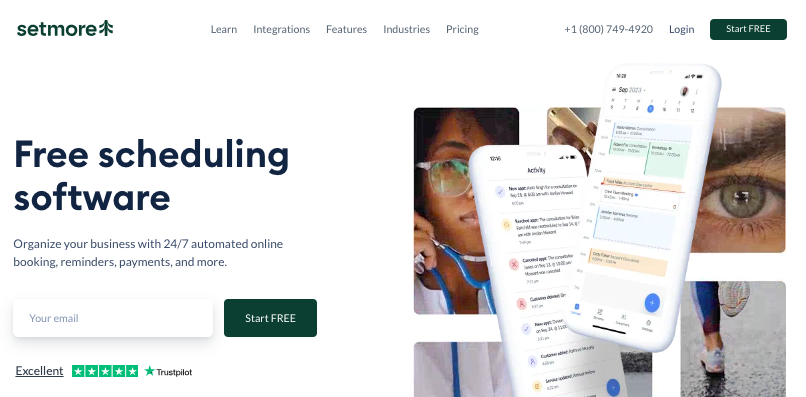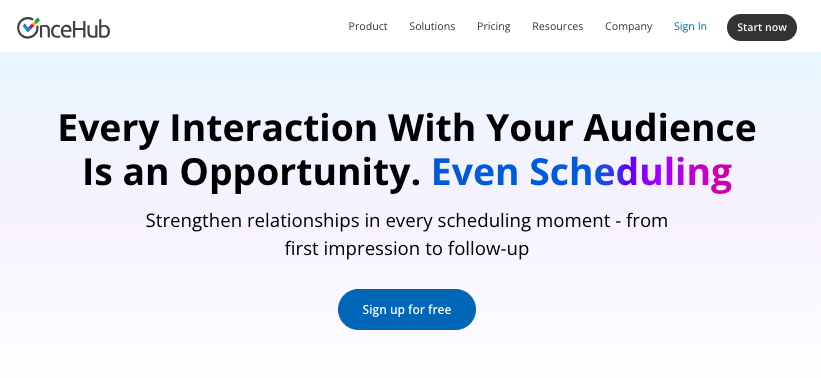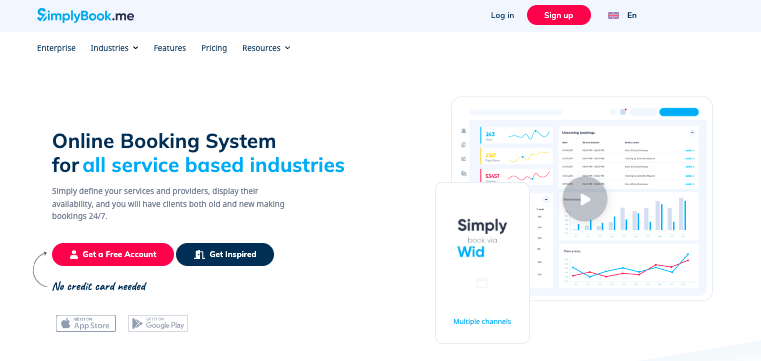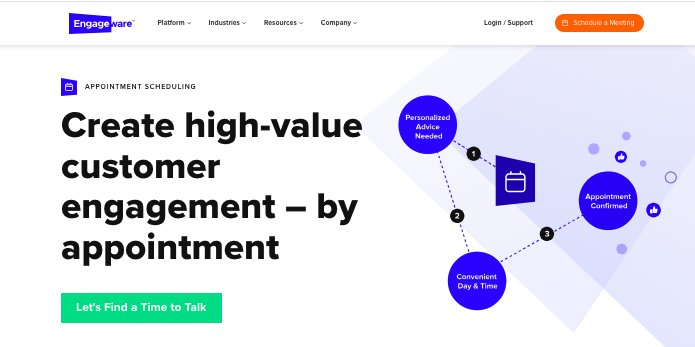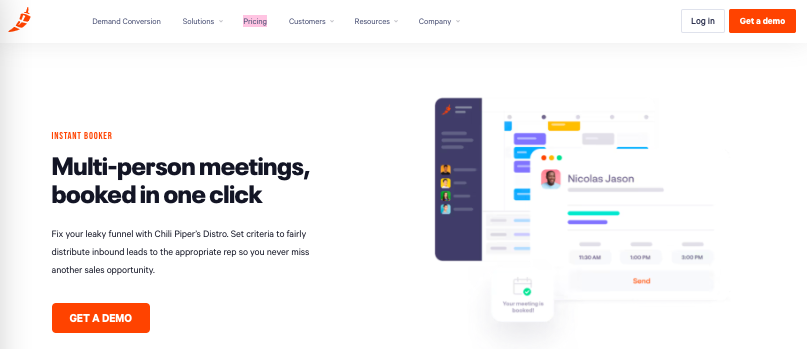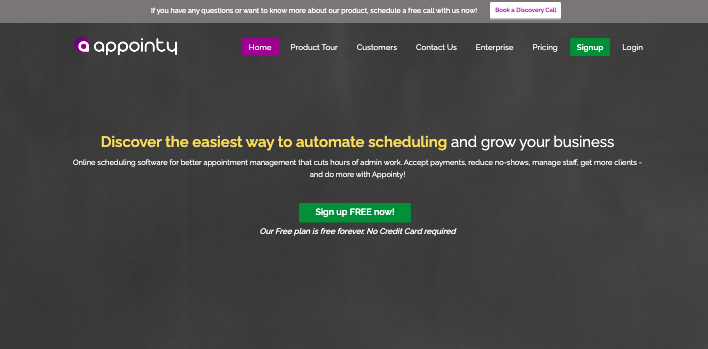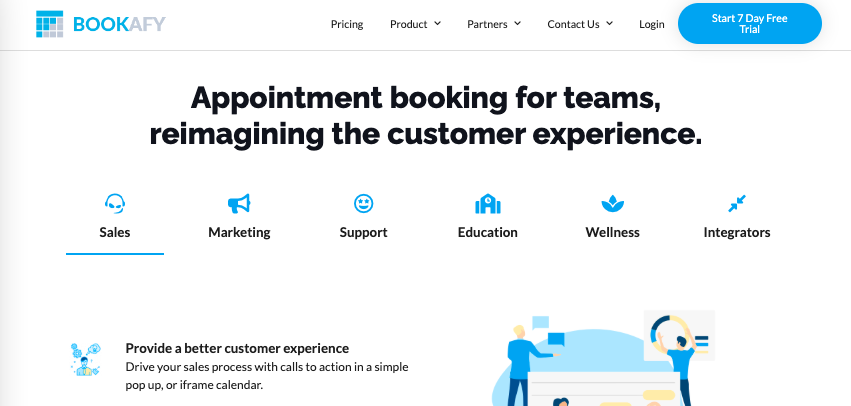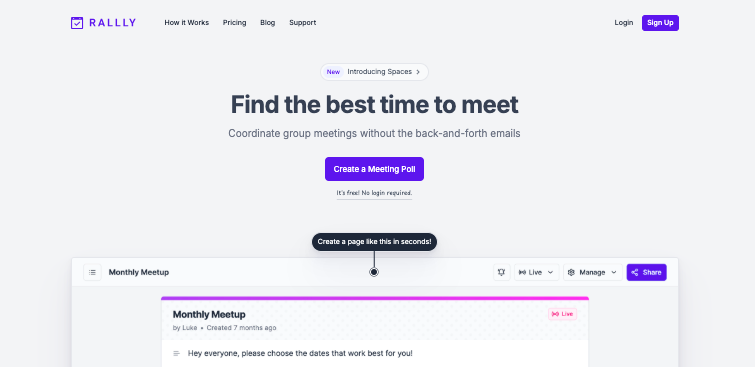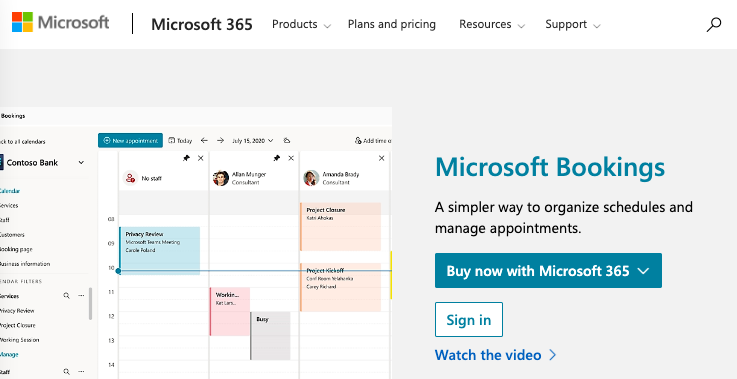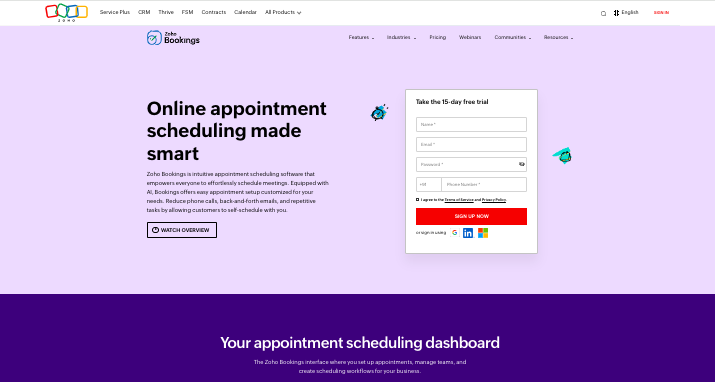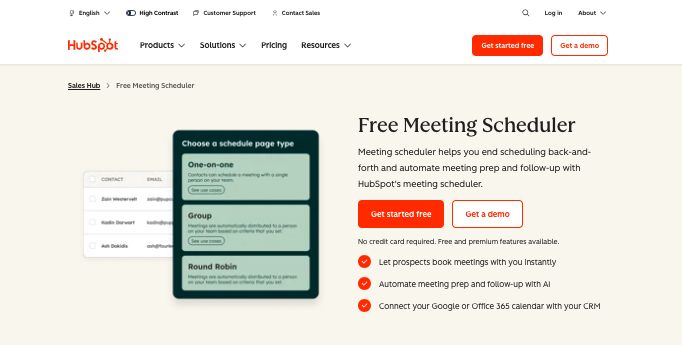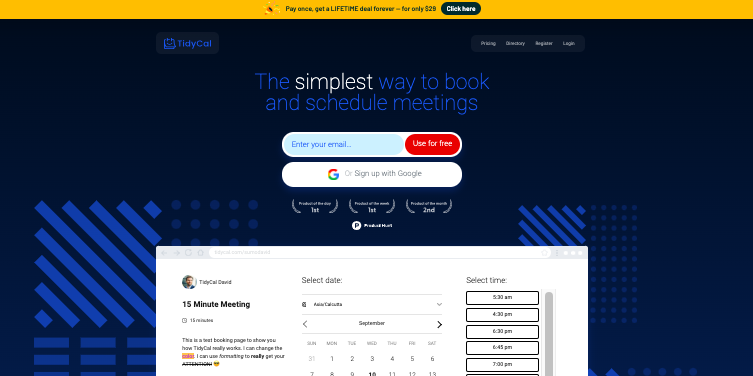When it comes to scheduling meetings without endless back-and-forth emails, Calendly has become one of the most popular tools available.
It allows professionals to share their availability, automate bookings, and integrate seamlessly with calendars and video conferencing apps.
With its simple interface and time-saving features, Calendly is a favorite among entrepreneurs, freelancers, recruiters, and teams.
However, while Calendly is excellent, it’s not always the perfect fit for everyone. Some users may find it too expensive for advanced features, while others may want more customization, branding options, or team-focused functionalities.
That’s where other similar tools step in, offering different pricing models, unique features, and flexible scheduling solutions.
Below, we’ve rounded up some of the best Calendly alternatives to help you find the right tool for your needs.
Also Read: Best Cozi Alternatives
1. Doodle
Doodle is a powerful scheduling tool that makes group coordination effortless.
Unlike Calendly, which mainly focuses on one-on-one or team bookings, Doodle shines in helping teams and groups find a mutually available time slot.
It works well for both professional and personal use, whether you’re scheduling meetings, workshops, or even social gatherings.
The platform provides polling options where participants can select their preferred times, making it easy to finalize meetings quickly. Doodle integrates with popular calendar apps like Google, Outlook, and iCal.
It also allows for time zone adjustments, ensuring participants worldwide stay aligned.
Paid plans offer branding options, reminders, and administrative features for businesses. This makes Doodle a go-to tool for group scheduling and collaborative decision-making.
Besides the paid plans, it also offers a free plan.
Explore: Best To-do List Apps
2. YouCanBookMe
YouCanBookMe is a great alternative for professionals who want a customizable booking page that adapts to their brand.
It lets clients and colleagues easily schedule time with you based on your availability, syncing directly with your calendar.
Unlike Calendly, YouCanBookMe offers strong personalization options, such as custom booking forms, automated emails, and branding elements. It also supports multi-language booking pages, making it ideal for global teams.
Users can set different rules for different meeting types, giving flexibility in managing schedules. The tool is especially popular among freelancers, consultants, and educators.
Free and paid versions are available, with the premium tier offering advanced workflows and integrations.
Also Read: Best Planner Apps For Android
3. Acuity Scheduling
Acuity Scheduling is well-suited for businesses and professionals who need a robust client booking system.
It goes beyond just scheduling by offering advanced features like payment processing, intake forms, and package management.
This makes it especially useful for service-based businesses such as coaches, therapists, or fitness instructors. Acuity integrates with major platforms like Zoom, Google Meet, and payment gateways like PayPal and Stripe.
It also offers time zone detection, ensuring clients always see accurate availability. Unlike Calendly, Acuity provides deeper branding controls, allowing you to customize the booking experience to match your business identity.
Its mobile app also ensures users can manage bookings on the go. Acuity offers four plans, offering advanced features in each tier.
Check Out: Best Doodle Poll Alternatives
4. Setmore
Setmore is an all-in-one scheduling solution designed for both individual professionals and businesses.
It offers a free plan that includes 200 appointments, making it appealing to startups and small teams.
The platform comes with features like automated reminders, recurring appointments, and integrations with video platforms like Teleport and Zoom.
Setmore also has a built-in payment processing option via Square and Stripe, allowing businesses to collect payments at the time of booking.
Compared to Calendly, Setmore places more emphasis on team and client management, offering tools for assigning appointments to different staff members.
Its mobile-friendly interface ensures smooth scheduling across devices. With both free and paid options, Setmore strikes a balance between affordability and functionality.
Also Read: Best Calendar Apps For Android
5. OnceHub (ScheduleOnce Earlier)
OnceHub, ScheduleOnce earlier, is a feature-rich scheduling tool geared toward businesses that want advanced workflow automation.
It integrates seamlessly with CRM tools like Salesforce and HubSpot, making it a good option for sales and marketing teams.
OnceHub provides robust customization options, including branded booking pages and tailored meeting types. It also allows for complex scheduling scenarios, such as round-robin assignments and multi-participant bookings.
OnceHub places greater emphasis on enterprise-level integrations and team coordination than Calendly. Its strong security features ensure safe handling of client data, which is crucial for large organizations.
The platform also supports lead qualification forms, enabling businesses to screen clients before confirming meetings.
OnceHub offers both free and paid plans, with the latter providing more enterprise-grade features. This makes it ideal for businesses that prioritize customization and automation.
Explore: Best TickTick Alternatives
6. SimplyBook.me
SimplyBook.me is a robust appointment scheduling tool built with businesses in mind. It includes a wide range of business-friendly features such as membership management, coupon codes, and service packages.
It also offers a customizable booking website where clients can book appointments, which is perfect for service-based businesses.
SimplyBook.me integrates with payment gateways like PayPal and Stripe, allowing businesses to accept online payments seamlessly.
The platform supports advanced features like API access, HIPAA compliance, and customer review collection.
With its extensive customization options, SimplyBook.me is more than just a scheduler, it’s a complete client engagement solution.
While it has a free plan, its premium tiers unlock branding, integrations, and marketing features.
Also Read: Hearth Display vs Skylight Calendar
7. Engageware
Engageware was TimeTrade earlier. It is a scheduling platform designed for enterprises that require scalability and advanced features.
Engageware focuses heavily on customer engagement, enabling businesses to match clients with the right staff members for appointments.
The tool integrates with enterprise systems like Salesforce and Microsoft Dynamics, ensuring seamless workflow management.
Engageware provides advanced analytics and reporting, which is beneficial for data-driven organizations. This gives it an edge over Calendly.
It also supports intelligent routing, allowing businesses to optimize appointment distribution across teams. The enterprise-grade security features make it a trusted option for industries like banking, healthcare, and education.
You can get in touch with their team to subscribe to a plan that matches your requirements.
8. Chili Piper
Chili Piper is a scheduling tool tailored for sales and revenue-focused teams.
It helps businesses book meetings instantly with qualified leads, eliminating the delays caused by traditional scheduling.
Chili Piper integrates directly into CRM systems like Salesforce and HubSpot, making it a seamless part of sales workflows.
It also offers advanced lead routing and qualification, ensuring meetings are assigned to the right team members.
Chili Piper supports real-time booking through email and chat, which boosts conversion rates. Its analytics dashboard helps businesses track meeting performance and optimize processes.
While there’s no free plan, its features make it a strong investment for growth-oriented businesses.
Also Read: Hearth Display Review
9. Appointy
Appointy is a versatile scheduling software that caters to individuals, small businesses, and enterprises.
It offers a user-friendly interface with features like automated reminders, recurring bookings, and resource management.
Appointy also provides a booking page that can be embedded on websites or integrated with social media platforms like Facebook and Instagram.
Appointy includes features for managing classes, workshops, and group events, making it popular among educators and trainers. It also integrates with Zoom and Google Meet, making online session management easier.
The tool supports online payments through PayPal and Stripe.
Appointy also has a free plan along with the paid versions.
10. Bookafy
Bookafy is another user-friendly scheduling tool that works well for both individuals and teams. It offers core scheduling features like calendar syncing, meeting reminders, and customizable booking pages.
In contrast to Calendly, Bookafy puts more emphasis on branding, offering white-label options and custom themes.
The platform also supports recurring appointments, group bookings, and multi-language booking pages.
Bookafy integrates with Zoom, MS Teams, and payment processors for seamless business operations. Its automation features reduce manual work by handling confirmations and follow-ups.
The free version works for basic scheduling, while paid plans unlock more advanced capabilities.
Check Out: Skylight Calendar Review
11. Rallly
Rallly is another reliable scheduling platform that works best for groups and communities.
Its simple interface allows users to create polls where participants can vote on their preferred meeting times.
Unlike Calendly, Rallly does not focus on one-on-one scheduling but is perfect for finding common availability among groups.
It’s particularly popular for community events, informal gatherings, and team meetings. The platform doesn’t overwhelm users with unnecessary features, keeping the focus on simplicity.
While it may lack advanced integrations, it’s ideal for those who want a straightforward solution. It also offers a paid plan along with the free version.
12. Microsoft Bookings
Microsoft Bookings is a scheduling tool that integrates directly with Microsoft 365. It’s designed for businesses and organizations already using the Microsoft ecosystem.
The platform allows users to create customizable booking pages, assign appointments to staff, and send automated reminders.
Microsoft Bookings provides deeper integration with Outlook and Teams, making it highly efficient for internal collaboration.
It also offers security features aligned with Microsoft’s enterprise standards, which is a big plus for larger organizations.
Clients can easily schedule time with specific team members or services. While it doesn’t have a free version outside of Microsoft 365, it’s cost-effective for those already on subscription.
13. Zoho Bookings
Zoho Bookings is part of the popular Zoho suite, making it a strong choice for businesses already using Zoho products.
It allows users to create booking pages, manage appointments, and accept online payments. Zoho Bookings is highly customizable and integrates seamlessly with Zoho CRM and other apps.
This makes it especially valuable for sales, support, and service-based teams. The platform supports both individual and team scheduling, along with resource management features.
It also offers real-time notifications and reminders, reducing no-shows. Zoho Bookings has both free and paid versions, making it accessible for businesses of all sizes.
For those seeking a scalable scheduling solution with CRM integration, Zoho Bookings is a standout option.
Also Read: Skylight Calendar vs Echo Show
14. HubSpot Meetings
HubSpot Meetings is a scheduling tool that comes as part of HubSpot’s CRM suite. It’s designed primarily for sales and marketing teams that want to streamline client interactions.
HubSpot Meetings is fully integrated with HubSpot CRM, making it easy to track customer interactions and manage pipelines.
The tool allows users to create personalized booking links and embed them in emails or websites. It also supports round-robin scheduling, ensuring leads are evenly distributed across team members.
HubSpot Meetings provides free access with limited features, while advanced features are included in HubSpot’s paid tiers. Its analytics and CRM integration make it particularly valuable for growth-focused businesses.
Also Read: Best Zoom Alternatives For Small Businesses
15. TidyCal
TidyCal is an affordable scheduling tool developed by AppSumo. It provides the core features you’d expect, such as booking links, calendar syncing, and automated reminders.
TidyCal emphasizes simplicity and affordability, also offering a one-time lifetime purchase option instead of ongoing subscriptions.
It supports both free and paid meetings, with Stripe and PayPal integrations for payment collection.
TidyCal also integrates with popular calendars, ensuring schedules are always up to date. The platform offers customizable booking pages with branding options.
Its lightweight design makes it easy for individuals and small businesses to set up quickly. For budget-conscious users, TidyCal is one of the best low-cost Calendly alternatives available.
Check Out: Best Planner Apps For iPad
Conclusion
From simple tools like Rallly to enterprise-grade solutions like TimeTrade and Chili Piper, the market offers something for everyone.
Most of these tools excel in one area or another, so the best approach is to try a couple and see which one aligns with your workflow.
With the right alternative, you can simplify scheduling while ensuring it works seamlessly with your business goals.
Enjoyed the post?

